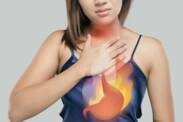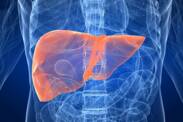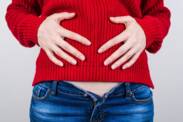Symptoms associated with the digestive system

Stool with blood - blood in the stool
If you notice a stool with a mixture of blood, this does not necessarily mean something very bad. However, it is necessary to find out the cause and address it to avoid unnecessary complications.Any person who finds blood on the toilet paper or in the toilet bowl after a big urge is frightened by what...

Diarrhoea
Diarrhea is considered to be a thin stool that does not keep its shape and appears multiple times during 24 hours. It is a common symptom of diseases and diseases of the digestive system.

Itching of the rectum
Itching of the rectum is one of the unpleasant and quite frequent troubles. It can be provoked by a minor or, on the contrary, serious health problem. In some cases, the reason is not even found at all.

Overweight
Being overweight is a worldwide problem, both for society and for individuals. It results in health problems, diseases. These can be minor but also serious. Overweight and obesity are the cause of diabetes, high blood pressure and other health problems.

Swallowing disorders
Swallowing is important to ensure nutrition and fluid intake. Swallowing itself has three phases, namely oral, pharyngeal and oesophageal. Food and fluids pass from the oral cavity through the oesophagus to the stomach. The problem or pain in swallowing can occur in any part and for different reasons. The reason may be an obstruction, a neurological disability or even another disease.

Malnutrition
Even today, it is still a problem in many countries and can be found even in developed countries. In addition to malnutrition due to poor socio-economic conditions, we are also familiar with malnutrition that appears as a symptom of various diseases.

Heartburn
Heartburn is also called pyrosis, cardialgia, and acid indigestion. If heartburn is neglected, serious health problems can occur.

Gaining weight
Weight gain is a problem that can be caused by an improper lifestyle. Often the problem is a genetic predisposition. In some cases, the cause must be sought in a disease. During pregnancy, some weight gain is desirable.

Indigestion
Malnutrition is a symptom that can have a number of causes. These can be psychological as well as physical. The most common psychological disorders are anorexia and bulimia. The incidence in physical problems is variable. Malnutrition can be manifested by any disease.

Thinning
Burping is how excess air from the esophagus or stomach gets out of the digestive tube. Excess burping may or may not indicate a health problem.

Vomiting after eating and nausea
Vomiting is a defensive reflex of the body to get rid of the contents of the digestive tract. The cause may be a dietary error, a psychological factor or a clinical symptom of a particular disease. What are all the possible causes of nausea and vomiting after eating?

Vomiting blood
We usually associate vomiting blood with stomach ulcers. However, it can occur due to several causes and diseases.

Black stool
Black stool as a symptom indicates bleeding in the digestive tract. However, it can also occur after eating certain foods or medications.

Increased appetite
Appetite is a natural part of us. Increased appetite occurs mainly after physical activity, in children because of growth. Increased appetite is a normal part of pregnancy. It also occurs as a result of various diseases, for example metabolic or endocrine.

Vomiting
Vomiting is an unpleasant condition that almost everyone has encountered during his life. It is a defense mechanism of the digestive system. What are all the possible causes of vomiting and upset stomach? What is the quick help and treatment?

Liver enlargement
It is a symptom of diseases of the heart, the lungs or even the liver itself. It occurs in cases of fatty liver, cirrhosis or other diseases, which may be infectious or hereditary.

Stuck winds - stopping the outflow of gases
Winds are a common part of human digestive processes. Stale winds are a relatively common health problem with various causes. In most cases, stale winds are not a signal of a serious illness and the problem subsides in a short time. What are all the possible causes of stale winds and bloating?

Flatulence - bloating
Excessive gas formation in the digestive tract is a natural part of human health. However, excessive flatulence can signal a common dietary error or various diseases of the digestive system. What are the possible causes?

Bloating - flatulence
Abdominal bloating is a relatively common problem. It occurs when there is an excessive amount of gas in the digestive tract. In most cases, it is caused by a dietary error. It can also signal a specific digestive tract disorder. What are the possible causes of bloating?

Cramps in the abdomen
Almost everyone experiences abdominal pain and cramps in the digestive tract during their lifetime. Cramps can signal dietary errors. They can also indicate various diseases. When is it appropriate to see a doctor? What helps relieve them?
The digestive system is the system in the human body whose main function is to receive and process food from the external environment while expelling excess or unnecessary substances out of the body. In humans, this system also provides for the absorption of nutrients and important substances from food through the intestines into the body, while the unprocessed parts of the food are passed as unnecessary and waste substances out of the body through the excretory part of the system.
Problems with the digestive system can occur in any part of it, and many times they directly reflect a person's lifestyle and diet. Therefore, if a person eats a healthy and varied diet rich in important substances, vitamins and minerals, this will be reflected in a better state of his digestive system and also in better health of the body. However, many processes or problems are not directly the responsibility of the individual and can occur without his direct involvement.
In addition to direct complications and diseases in the digestive system, diseases of other parts of the body can also be reported by various symptoms within this system. Often the digestive system is attacked by infections, or there are problems during the absorption or excretion of food, and many times a person also has a problem ingesting certain foods and diets due to systemic diseases. The most dangerous diseases of the digestive system are certainly tumours and cancers.
Stool problems
It is often possible to tell if the body is suffering from any health problems by the state of the stool. For example, stools with a mixture of blood indicate internal bleeding and this is a symptom present in, for example, diverticulosis, Ebola, haemorrhoids, amebiasis, giardiasis, salmonellosis and other infections of the digestive tract. Stool with mucous admixture is also a symptom for infectious bowel diseases, but also occurs, for example, in amebiasis of the liver, Crohn's disease, and in tumors in the colon.
Too light stools may not be a problem if it is a one-off occurrence, when digested food may also be the cause. However, it is more common in pancreatitis, gallbladder tumours, or one of the symptoms of jaundice or cirrhosis of the liver. Similarly, black stools, if occurring once, are not immediately a pathological symptom. However, it is also a symptom of gastritis, typhoid fever, or more serious cancers such as stomach or oesophageal cancer.
Diarrhoea is also one of the symptoms manifested by stools, namely excessively watery and runny stools, but the cause originates in the intestines. Diarrhoea is a manifestation of several infectious diseases such as rotavirus enteritis or giardiasis, but also, for example, ulcerative and inflammatory bowel diseases, metabolic disorders, intolerances to various substances, also celiac disease, Crohn's disease, amebiasis of the liver, some allergies, and often diarrhoea is also caused by stress or the body's overall rapid metabolism.
Many people are accompanied, for example, by repeated morning stools, the urge for which cannot be suppressed. This stool may be related to excessive bowel peristalsis and is typical of irritable bowel syndrome or irritable stomach or rectal syndromes. A general inability to retain stool occurs with problems controlling the anal sphincter muscles at will. It can occur, for example, in epileptic seizures, but also in permanent nerve damage, for example in diabetes.
The opposite of diarrhea is constipation, when a person has a problem with stools that are too thick, and with irregular stools, when it is difficult for a person to defecate at all. Constipation is often accompanied by pain in the lower abdomen due to difficult defecation. It typically occurs in cirrhosis, diverticulosis, diabetic neuropathy, Conn's syndrome, is a symptom of paratyphoid disease, or inflammation of the pancreas. It is dangerous if it occurs in ileus, i.e. intestinal obstruction.
Nausea and vomiting
A common symptom related but not only to the digestive system is nausea. This condition accompanies, for example, Addison's disease, cholecystitis, various infectious diseases and inflammations such as salmonellosis, giardiasis, gastritis, but also liver failure, tick-borne encephalitis, typhoid diseases and also some febrile illnesses, such as typically influenza. Nausea is also characterized by general lack of appetite and the urge to vomit. This is typical not only for food digestion problems.
By vomiting, the body tries to either get rid of harmful substances or expel the contents of the stomach before it is digested. Typically, it is a symptom of infectious bowel diseases, viral and other inflammations in the brain or elsewhere in the body, sometimes also related to nervous diseases. Vomiting is also a symptom for phenylketonuria, for example, and occasionally for myocarditis. If a person vomits blood, it is often related to stomach ulcers. Sometimes it can also be induced artificially, for example in anorexia or bulimia, which are eating disorders.
Enlargement and shrinkage of organs
Liver enlargement is a symptom typical of excessive alcohol intake, but also of some infectious and inflammatory diseases affecting this organ. For example, it can be a cytomegalovirus infection, hepatorenal syndrome or cirrhosis of the liver. Many times the liver also enlarges due to tumours or infectious diseases such as paratyphoid fever. Conversely, liver shrinkage occurs, for example, in acute failure in hepatitis or in necrosis.
Enlargement of the spleen, which is also part of the organs of the digestive system, can be caused either by cancer of this organ or by infectious diseases such as jaundice, infectious mononucleosis or paratyphoid infection. Also, many times its enlargement is also related to enlargement of the liver. Typically, the spleen is also enlarged in cytomegalovirus infection or leukaemia, or in haemolytic anaemia, which in turn are blood diseases. Sometimes enlargement can also be associated with typhoid fever.
Problems with food and fluids
Lack of fluids in the body causes thirst. In the case of abnormal and excessive thirst, it can also be a symptom of certain diseases, such as diabetes, hypaerparathyroidism, hepatorenal syndrome, cholera or Conn's syndrome. With prolonged fluid deficiency, either by inadequate intake or excessive expenditure, dehydration occurs. The latter is typical, for example, of bulimia, anorexia, celiac disease, amyloidosis, Addison's disease and infectious diseases associated with diarrhoea.
With inadequate food intake, malnutrition is a typical symptom. This condition is associated with eating disorders such as bulimia or anorexia, but can also occur in cirrhosis of the liver, pancreatic cancer, neurodegenerative diseases or AIDS. The opposite is binge eating, also called hyperphagia, which can be the result of inborn errors of metabolism or a symptom of obesity, metabolic syndrome and sometimes occurs in bulimia.
Many times overeating is accompanied by an increased appetite. This is sometimes natural, for example with heavy physical exertion or pregnancy, but excessive overeating is also a symptom of obesity, diabetes, metabolic syndrome and hyperthyroidism. Overeating is also associated, but not necessarily, with weight gain. Such weight gain also occurs with lack of exercise and is associated with obesity, or may be a symptom of hormonal fluctuations and metabolic disorders.
The opposite of an increased appetite is, on the contrary, a lack of appetite. This accompanies a number of infectious and inflammatory diseases; typically, decreased appetite also accompanies cancer and cancer. It is also often associated with problems in the nervous system and febrile illnesses. Food aversion or decreased appetite occurs in gastritis, Addison's disease, anorexia, staphylococcal enterotoxicosis, typhoid fever, cirrhosis, influenza, or even migraine.
People often have problems with being overweight. Typically this is with obesity and lack of exercise, but excess weight is also related to diabetes, metabolic disorders, high cholesterol, and sometimes also occurs with gynaecological diseases such as ovarian cysts. However, if a person is only slowly gaining weight, this is a state of failure of the body to thrive, which does not always have its cause in the digestive system. Often it is a symptom of cardiovascular and metabolic diseases.
Sudden weight loss and weight loss without apparent cause are also quite serious symptoms, in which case there may be multiple causes. Many times it is related to cancers in different parts of the body, or infections or inflammation. Typically these are also symptoms of diabetes, leukemia, celiac disease, anorexia, amebiasis or cirrhosis of the liver, cholera, Crohn's disease, gastritis, or sudden weight loss can also occur as a manifestation of AIDS in its later stages.
Symptoms associated with the abdomen
Many times the stomach or abdomen is also troubled by cramps. Sometimes they occur after a heavy meal, but if they are more frequent, they may be a symptom of gastritis or an infectious disease such as salmonellosis or shigellosis, for example. Stomach cramps usually indicate hunger, but if the person is not hungry, it is probably a sign of problems in the digestive tract. For example, irritable bowel syndrome or lactose intolerance, i.e. allergy to dairy products, are manifested in this way.
Often times a person also has feelings of heaviness in the abdomen or feelings of fullness in the abdomen. This usually occurs when there are problems with digestion of food and is a typical symptom of irritable bowel or stomach syndrome, but sometimes also a symptom of gastritis or hepatic steatosis. Liver diseases are also associated with the occurrence of so-called water in the abdomen, which is a fluid that accumulates there for pathological reasons. In addition to liver failure or cirrhosis, this disease is sometimes associated with ovarian cancer.
Burping, bloating and gas
Among the natural human manifestations related to the digestive tract is also related to belching, which is caused by the inhalation of air into the stomach. It occurs as a result of improper food intake or when liquids with air bubbles are ingested. However, excessive belching can be a symptom of, for example, phenylketonuria or ulcers. The condition of excessive gas outflow and at the same time a feeling of fullness of the stomach is also called bloating and many times it is a symptom of gastritis, celiac disease and digestive problems.
If there is simultaneous bloating and also excessive outflow of gases, it is already flatulence. Occasional occurrence may not be a symptom of disease, but excessive flatulence is also a symptom of diverticulosis, lactose intolerance, celiac disease and sometimes cirrhosis. A serious condition is the cessation of the outflow of gas, especially if it is a longer-term problem. Sometimes it is also associated with constipation or diarrhoea and occurs as a symptom of ileus, Crohn's disease or acute pancreatitis.
Increased and decreased levels of substances
The digestive system many times also directly influences the increased or decreased levels of certain substances and elements in the body, which is manifested mainly by their level and presence in the blood. For example, elevated cholesterol is usually related to a long-term poor diet, such as the intake of excessive amounts of fats and so on. This symptom is part of cardiovascular disease, such as atherosclerosis, but is also related to obesity and a number of endocrinological and metabolic disorders.
Decreased levels of folic acid or vitamin B12 are also related to the digestive system, either through inadequate intake of foods containing these substances, or inadequate absorption in the intestines. Typically, reduced blood levels of these substances are seen in anaemia, but for example, a deficiency of folic acid, also called vitamin B9, may also be related to Spina Biffida. When vitamin B12 levels are reduced, degenerative changes occur in the spine and bone marrow.
Other symptoms
Some digestive problems are also related to the digestive system. Swallowing disorders, for example, can point to a mechanical obstruction, but they are also a symptom of inflammation and other diseases. Esophageal cancer, laryngitis and also thyroid cancer are manifested in this way. When bleeding from the mouth, sometimes it is also bleeding directly from the esophagus. This is usually due to the presence of varices, or varicose veins in the oesophagus, which is a manifestation of portal hypertension, and possibly also cirrhosis of the liver.
Heartburn usually means irritation of the stomach lining and one has both a feeling of pain in the abdomen and a feeling of acidity. This is a typical symptom of oesophageal reflux disease or duodenal ulcers, but sometimes it is also a non-characteristic symptom of ovarian cancer. The digestive system is terminated by the rectum, which may be troubled by itching. This may be a symptom of a diet lacking in fibre, but itching is also typical of haemorrhoids, phlegm or gonorrhoea.









